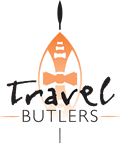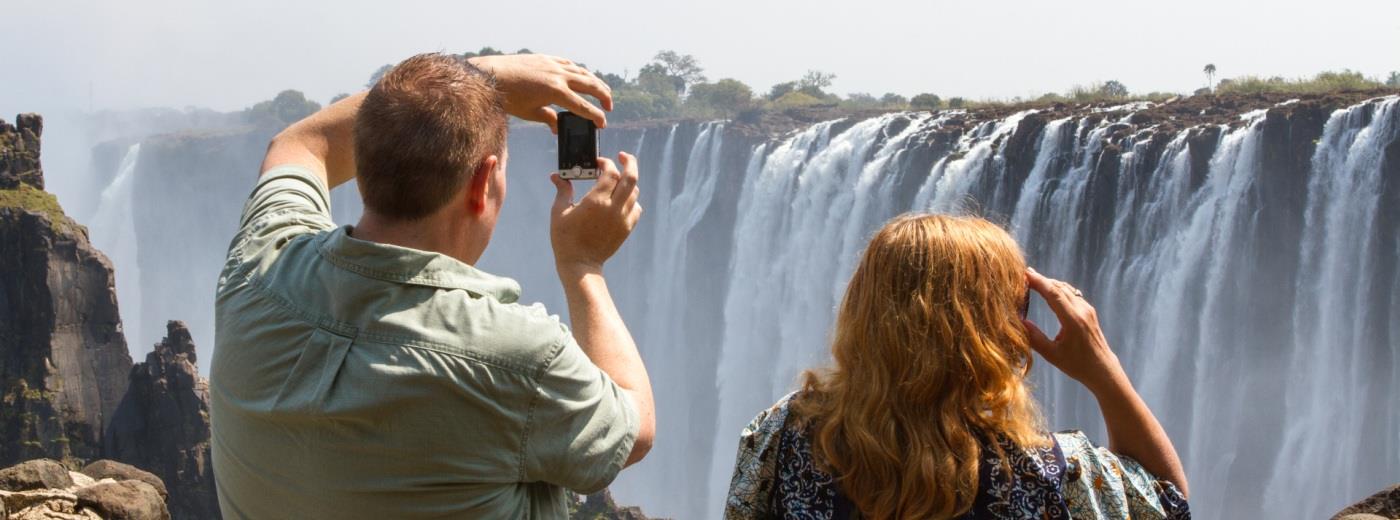All you need to know for your holiday to Zimbabwe
Visa Requirements
Latest Travel Updates
For up-to-date travel information from the UK government, please check:
UK Government Advice: www.gov.uk/foreign-travel-advice/zimbabwe
Normally, holders of the following passports require a visa to enter Zimbabwe when travelling as a tourist:
United Kingdom; United States of America; Canada; Ireland; France; Germany; Spain; Portugal; Italy; Switzerland; Australia; New Zealand.
If you are a passport holder from another country, please contact your local Zimbabwe High Commission or Embassy for up-to-date visa requirements or check this website: https://www.evisa.gov.zw.
The following visas are available (all costs are per person and subject to change):
Single Entry: USD 30 (apart from British and Irish nationals who are charged USD 55; and Canadian nationals who are charged USD 75)
Double Entry: USD 45 (apart from British and Irish nationals who are charged USD 75)
Visas will be issued on arrival at an entry point upon payment of the correct visa fee - please make sure you have the correct amount of cash (US dollars) with you as change may not be available.
You can also obtain your visa prior to arrival, and this can be done as an E-Visa via https://www.evisa.gov.zw.
For visitors wanting to travel across to Zambia, the KAZA UniVisa is also an option (although unfortunately this is not always available). This visa allows tourists of certain nationalities to travel freely between Zimbabwe and Zambia, within a 30 day period from the date of their first entry. This same visa will also allow those who cross into Botswana for a day trip and who require a visa to do so to come back into Zimbabwe (or Zambia) without paying any extra visa fees - please note however it is not valid if staying in Botswana overnight.
The UniVisa can ONLY be obtained at SELECTED border posts (currently Victoria Falls Airport, Victoria Falls Land Border, Kazungula Land Border (border with Botswana) and Harare Airport) - the current price is USD 50 per person (subject to change) and payable in cash. To check whether you are eligible for this visa, please check the KAZA UniVisa sections of the Zambian or Zimbabwean government websites.
For anyone entering Zimbabwe, your passport should be valid for a minimum period of 6 months from the date of entry and have 3 blank pages left in it to enable you to enter Zimbabwe and exit via one of the neighbouring countries, if leaving at short notice becomes necessary.
PLEASE NOTE: Countries can change their entry requirements at any time. Travel Butlers try to ensure that the information displayed here is correct, but the onus remains with the traveller to verify the information with the relevant High Commission or Embassy and ensure that they can comply with the applicable entry requirements.
Medical Considerations
You are advised to contact your doctor or clinic around 4-8 weeks before your trip to check whether you need any vaccinations and to get their professional medical advice regarding travel to Zimbabwe.
To help prevent diarrhoea, avoid tap water – drink only bottled water and use bottled water for tooth brushing, and avoid ice made with tap water – and only eat fruit or vegetables that are cooked or can be peeled. To help avoid heatstroke, drink plenty of bottled water/fluids, and keep out of the midday sun.
There is no risk of yellow fever in Zimbabwe, so a yellow fever vaccination is NOT required for travellers whose sole destination is Zimbabwe. However, in accordance with International Health Regulations, Zimbabwe requires all travellers over one year of age arriving from a yellow fever risk country, or having been in transit longer than 12 hours at the airport of such a country, to have a yellow fever certificate. These countries include Kenya and Uganda but it is up to the traveller to check the full list here https://nathnacyfzone.org.uk/factsheet/60/yellow-fever-maps
There is a risk of malaria in all areas of Zimbabwe - check with your doctor about suitable antimalarial tablets. Dengue fever can also be transmitted via mosquito bites. Try to avoid mosquito bites wherever possible - wear loose long-sleeved clothing and trousers, and use a repellent on clothing and exposed skin.
Tsetse flies are found throughout the northern Zambezi River drainage area, including the Lake Kariba area. There have been some cases of sleeping sickness occurring after a tsetse fly bite, although these are mainly amongst farmers and other locals who have repeated exposure to bites. However, the fly can still deliver a painful bite, so it is advisable to take necessary precautions - don't wear dark colours, especially black and blue (including denim), wear long-sleeved clothing and trousers, and don't walk through bushes during the hottest part of the day.
language and people
English is the official language of Zimbabwe and is widely spoken with all guides and general staff in camps and lodges having a good command. In the broader population however, not everyone will speak English fluently as many have grown up speaking different tribal languages. Other indigenous languages spoken include Shona and Ndebele.
We would ask that all travellers are respectful of the local culture as follows:
Carry a photocopy of your passport at all times. Leave your original passport somewhere safe.
It is against the law for civilians to wear any form of clothing made from camouflage material.
Photographing government offices, airports, military establishments, official residences, embassies and other sensitive places is illegal. Taking photographs of members of police and armed forces personnel and of demonstrations and protests is also not permitted. The area around State House in Harare (the President’s official residence) is patrolled by armed members of the Presidential Guard and photography here is strictly prohibited.
Some acts of homosexuality is illegal in Zimbabwe. Whilst everyone is of course entitled to their own sexual preferences and gender identity, we would advise all clients of the LGBT+ community to refrain from public displays of affection (including kissing and holding hands) and to be as discrete as possible about their relationship.
If you’re working as a journalist (for example, as a reporter or news photographer), you must get accreditation before you travel. If you do not have proper accreditation, you are at risk of arrest, detention in difficult conditions, a fine and deportation. The Zimbabwe government uses a broad definition of journalism. This may include any form of interview, filming or photography. Consider carefully the risks associated with engaging in social media activities such as posting comments, blogging or sharing photographs, which can be seen as journalism.
currency
Zimbabwe has a multi-currency system, and you can use US dollars for most transactions. In April 2024, Zimbabwe Gold (ZiG) was introduced as a new currency to replace the Zimbabwean dollar, which will cease to be legal tender at the end of April. New ZiG notes and coins will start to circulate from 30 April. The US dollar will remain legal tender.
Prices may be shown in Zimbabwean dollars or ZiG but US dollars are widely accepted. You should check before making a transaction whether the price quoted is in Zimbabwean or US dollars as the symbol for both is $. It is recommended to check exchange rates prior to any transaction. You should check in advance what payment methods a restaurant, hotel or tour operator will accept. Some businesses, including some medical providers, may not accept payment by credit or debit card.
Zimbabwe is currently experiencing a shortage of cash. Cash withdrawals can be made at some ATMs and bank branches with an international bank card but availability cannot always be guaranteed. Credit and debit cards are increasingly being used for transactions. You should always ensure that you are being charged in the correct currency. There are also some challenges with international transfers from outside of Zimbabwe.
You must declare cash or travellers cheques if the value is USD 10,000 or more. It is illegal to leave Zimbabwe with more than USD 2,000 (or equivalent) in cash, unless it is left over from funds which you have brought in yourself and declared on arrival. You should keep the proof of declaration to avoid problems with officials on exit. It is also illegal to exchange foreign currency anywhere other than at officially licensed dealers (e.g. banks or bureau de change). Carry small denomination notes as change is rarely available.
climate
You can read more about the climate in our guide to the best time to visit Zimbabwe.
phone coverage
The International Dialling Code for Zimbabwe is +263, followed by the regional code and then the number.
All of the safari lodges are in the middle of the African bush. There is therefore limited or no access to internet for guests at any of the camps and there is limited mobile phone reception available at some camps only. Of course if there is an emergency the camps are always able to get messages to and from guests.
electricity
Many safari camps and lodges run on generators and few have 24 hour electricity. Some camps will not have plug points in guest accommodation but will generally have power points in the main camp area for charging batteries. Many camps will have universal plug points however the most commonly used systems in are the UK square pegged plugs, South African round, 3-pronged plugs and Euro 2-pronged pin plugs. To be on the safe side, you should purchase an international adaptor before travel.
time zone
Zimbabwe Standard Time is 2 hours ahead of Greenwich Mean Time (GMT+2) and they do not operate Daylight-Saving Time.

